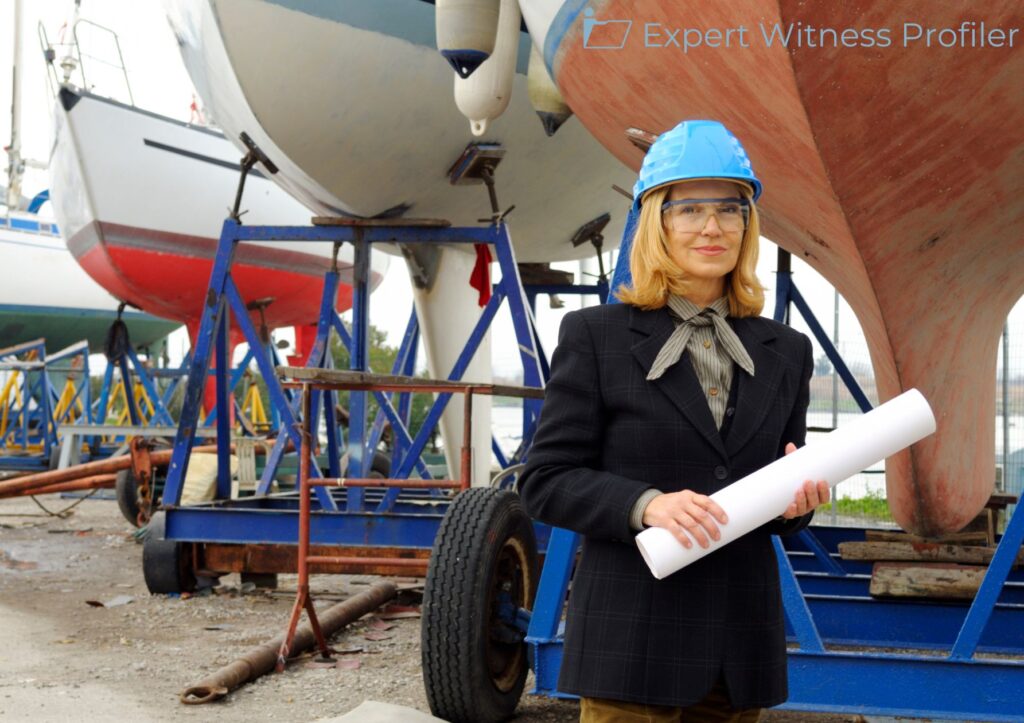Maritime Expert’s Opinion on the Preferred Engine Manufacturer is Based on Hearsay Statements
Posted on April 16, 2025 by Expert Witness Profiler
This case concerns naval architecture, marine engineering, and a motor vessel called the “Pickle” or the “Pickle Rick.” Plaintiffs Intrepid Oceans Marine, LLC (“IOM”), Intracoastal Marine Fuel, LLC (“IMF”), and Intrepid Tankers, LLC (“IT”) (collectively, “Plaintiffs”) are retailers of marine petroleum in Palm Beach County, Florida. Defendant JMS Naval Architects, LLC (“Defendant”) is a licensed naval architect and marine engineering firm.
Plaintiffs planned to own and operate a tank barge in furtherance of IOM’s marine petroleum business. On March 27, 2019, IOM contracted with Defendant to design and construct a 10,000 Gallon Double Hull Tank Barge (the “Pickle”). On June 18, 2020, IMF contracted with St. John’s Ship Building, Inc. (“SJSB”) to construct the Pickle. The Pickle was completed on or about February 21, 2022.
Plaintiffs alleged that after they took possession of the Pickle, they discovered significant problems with the performance of the propulsion system.
The Plaintiffs sued the Defendant for breach of contract and professional negligence, claiming the Defendant’s errors and omissions in naval design, engineering, and owner’s representation caused them significant financial losses.
Defendant sought to introduce the opinions of its two experts, Captain Christopher Karentz, a senior maritime consultant, and Bryan E. Strawbridge, P.E., CFEI, CVFI, a senior mechanical engineer. Plaintiffs have moved to exclude portions of both experts’ testimony.

Maritime Expert Witness
Captain Christopher Karentz has over forty (40) years of experience within the marine industry, including evaluation of collisions, allisions, ship, yacht, and small vessel systems failures, human factors related to losses, and incidents involving proper or improper observance of best marine practices.
Karentz has been qualified in both State and Federal courts to testify in areas of expertise including but not limited to marine navigation, vessel operations, crewing, management, vessel cargo, and charter operations.
Mechanical Engineering Expert Witness
Bryan E. Strawbridge, P.E. is a senior mechanical engineer whose experience covers mechanical system failures, including marine engines and vessels; marine propulsion and auxiliary power; marine diesel engines; and more.
Discussion by the Court
A. Captain Christopher Karentz
Whether IOM selected the engines under the advice of Cox and Peterson
Plaintiffs first moved to preclude Captain Karentz from offering his opinion that IOM selected the engines under the advice of Cox (the engine manufacturer), and Peterson Fuels.
Captain Karentz formed this opinion from his review of email communications between the parties and from his discussions with Defendant.
According to the Court, whether Plaintiffs selected the engines under the advice of Cox and Peterson Fuels is an issue of fact for the jury to determine after considering the evidence presented. This evidence includes the emails between Plaintiffs and Defendant. Karentz was not a party to these communications. And deciding whether these emails show that Plaintiffs selected the engines under the advice of third parties does not require specialized knowledge.
For these reasons, the Court held that Defendant has not met its burden to establish that allowing Captain Karentz to opine on this disputed fact would be helpful to the jury.
Whether IOM communicated with Cox and presented Cox to JMS as its preferred engine manufacturer
Plaintiffs moved to exclude Captain Karentz from offering his opinion that IOM communicated with Cox and presented Cox to Defendant as Plaintiffs’ preferred engine manufacturer.
Again, however, the Court held that these statements are not expert opinions. These are findings of fact that invade the province of the jury. Captain Karentz stated at his deposition that he formed his opinion based on his impression from his discussions with Defendant. Captain Karentz’s proffered expert testimony is not based on specialized knowledge; it is based on hearsay statements from Defendant.
The jury can weigh the trial evidence, including any admissible testimony from Defendant, to determine whether Plaintiffs communicated with Cox and whether Plaintiffs presented Cox to Defendant as the preferred engine manufacturer.
Whether Cox and/or SJSB had any responsibility to determine the suitability of the engines for application on the propulsion system of the Pickle
Plaintiffs next sought to exclude Captain Karentz from opining that Cox or SJSB had any responsibility to determine the suitability of the engines for the Pickle’s propulsion system.
In the expert report, Captain Karentz opined that “[a]s the designer and manufacturer of the subject motors, COX is the most knowledgeable entity to know if their motors were suitable.”
Plaintiff argued that Captain Karentz’s opinion should be excluded because Captain Karentz “is not a naval architect or marine engineer” and because his opinion “is pure speculation that is contradicted by the record evidence.”
During his testimony, Captain Karentz demonstrated his extensive expertise operating marine vessels and managing fleets; retaining and interacting with naval architects and shipbuilders; and helping to draft specifications for building and refitting vessels, as well as overseeing the related contracts.
The Court held that Captain Karentz’s testimony on this topic is neither speculative nor unreliable because his testimony is grounded in his relevant technical and specialized experience. His testimony assisted the jury in understanding the evidence to determine a fact in issue: who—Defendant, engine manufacturer, or vessel builder—bore responsibility to ensure that the engine would work as applied on the Pickle Rick.
The Standard of Care of JMS as a Naval Architect and Marine Engineering Firm
Plaintiffs next sought to exclude Captain Karentz from testifying as to Defendant’s standard of care as a naval architect and marine engineering firm, and to preclude Captain Karentz from rebutting Plaintiffs’ expert’s opinion that Defendant breached the applicable standard of care in this matter.
Plaintiff argued that Captain Karentz is unqualified to testify on this issue because he is not a naval architect or marine engineer. Plaintiff also argued that Captain Karentz did not apply “any reasonably accepted standard of care in the naval architect and marine engineering industries.”
Based on Captain Karentz’s testimony at the hearing on this motion, the Court held that his opinions on this issue are primarily about industry norms, contractual duties, and business obligations. Captain Karentz’s testimony concerned the typical role and behavior of a naval architect and marine engineering firm in the process of designing, building, and testing a vessel—that is, whether Defendant, as the naval architect and marine engineer, bore any responsibility to ensure the engines were suitable for the Pickle Rick.
The Court found Captain Karentz qualified to testify about Defendant’s responsibility on this issue.
Regarding whether either party can offer expert testimony as to the legal standard of care in this matter, the Court reserved its ruling.
Bryan E. Strawbridge, P.E., CFEI, CVFI
Plaintiffs moved to exclude Strawbridge from offering opinions about the Cox CXO300 engines themselves, including Strawbridge’s opinion that it should have been possible to tune the engines to operate on a displacement hull such as the Pickle Rick. Plaintiffs argued that Strawbridge is not qualified to opine on these particular engines, and that Strawbridge’s opinion on the “tunability” of the engines is purely speculative.
The Court found Strawbridge qualified when he testified at the hearing about the different ways that engines can be tuned or fitted to a vessel, such as through the engine’s software or making certain physical adjustments. Furthermore, Strawbridge spoke at length about the scientific methodology he applied—explaining, for example, how conducting sea trials results in a wealth of data for experts to review.
That said, Strawbridge himself stated during the hearing that he did not have access to enough data to support the conclusion that it should have been possible to tune the Cox engines to operate on a displacement hull such as the Pickle Rick. Strawbridge stated that although he applied the scientific method to analyze the situation, he did not personally have prior experience assessing dual diesel outboard engines, he was not permitted to join in troubleshooting the engines, and he did not have access to data from the vessel’s sea trials.
Without sufficient data, the conclusion that it should have been possible to tune the CXO300 engines is speculative. Because this lack of information has resulted in an unreliable methodology, the Court held that the Defendant has not met its burden of proof to establish the reliability of this expert opinion.
Held
The Court granted in part, denied in part and reserved in part Plaintiffs’ motion in limine to exclude certain opinions of Defendant’s experts, Captain Christopher Karentz and Bryan E. Strawbridge, P.E.
Key Takeaway:
While Strawbridge spoke at length about the scientific methodology he applies, he did not personally have prior experience assessing dual diesel outboard engines, he was not permitted to join in troubleshooting the engines, and he did not have access to data from the vessel’s sea trials.
Case Details:
| Case Caption: | Intrepid Oceans Marine, LLC V. JMS Naval Architects, LLC |
| Docket Number: | 9:22cv81964 |
| Court: | United States District Court, Florida Southern |
| Order Date: | February 24, 2025 |





